Youth is crucial for regional revitalization, says Minister of National Development Council Ming-Hsin Kung in keynote speech at NSYSU
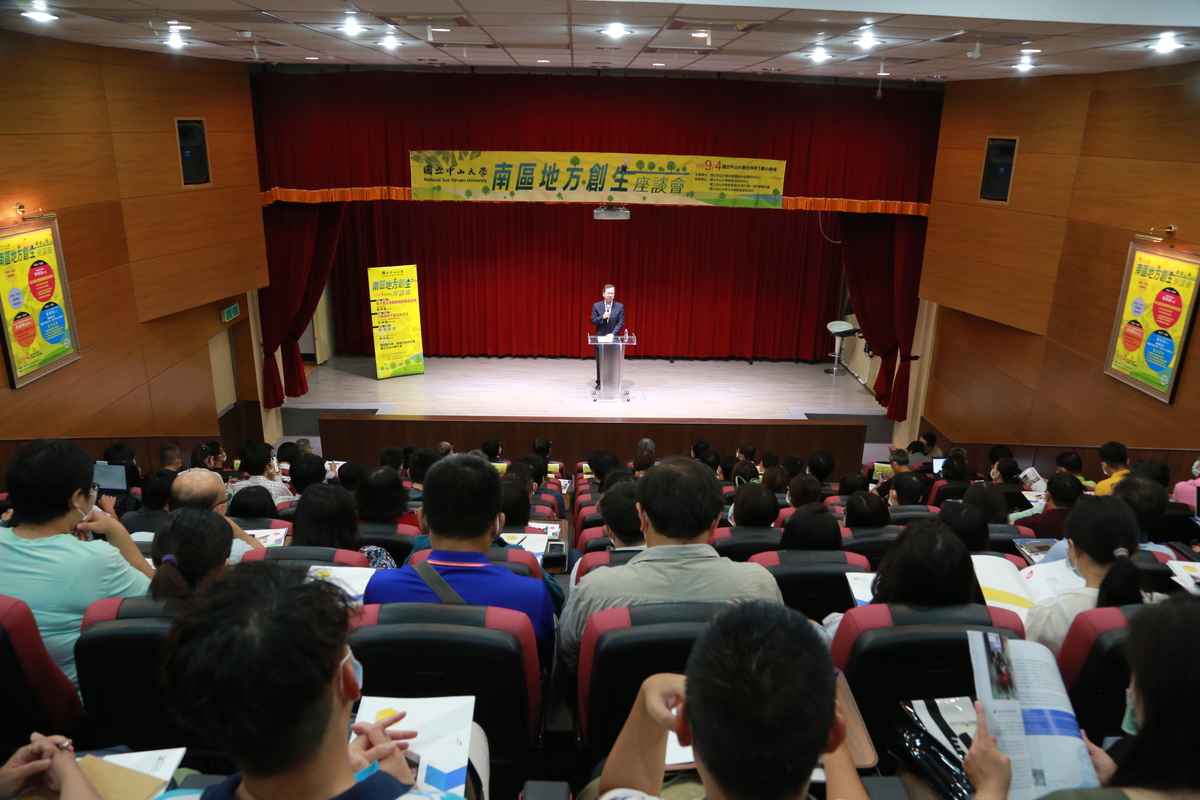
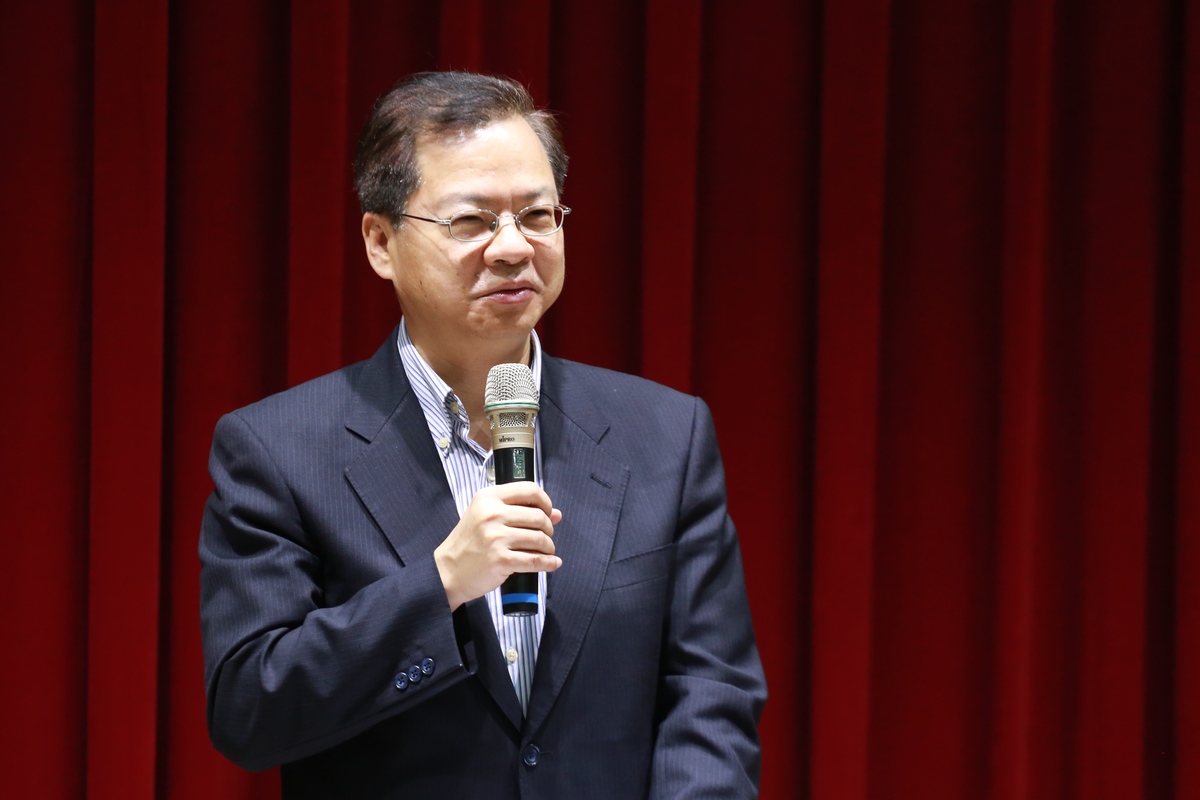
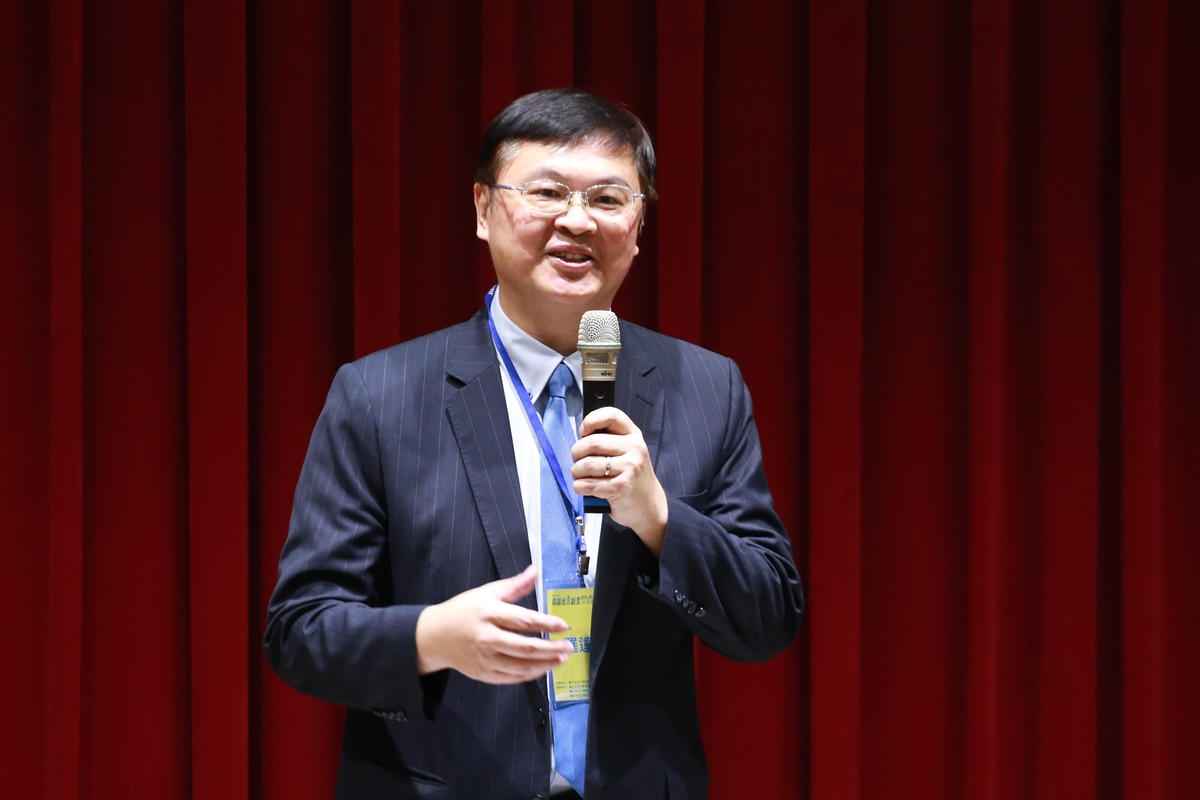
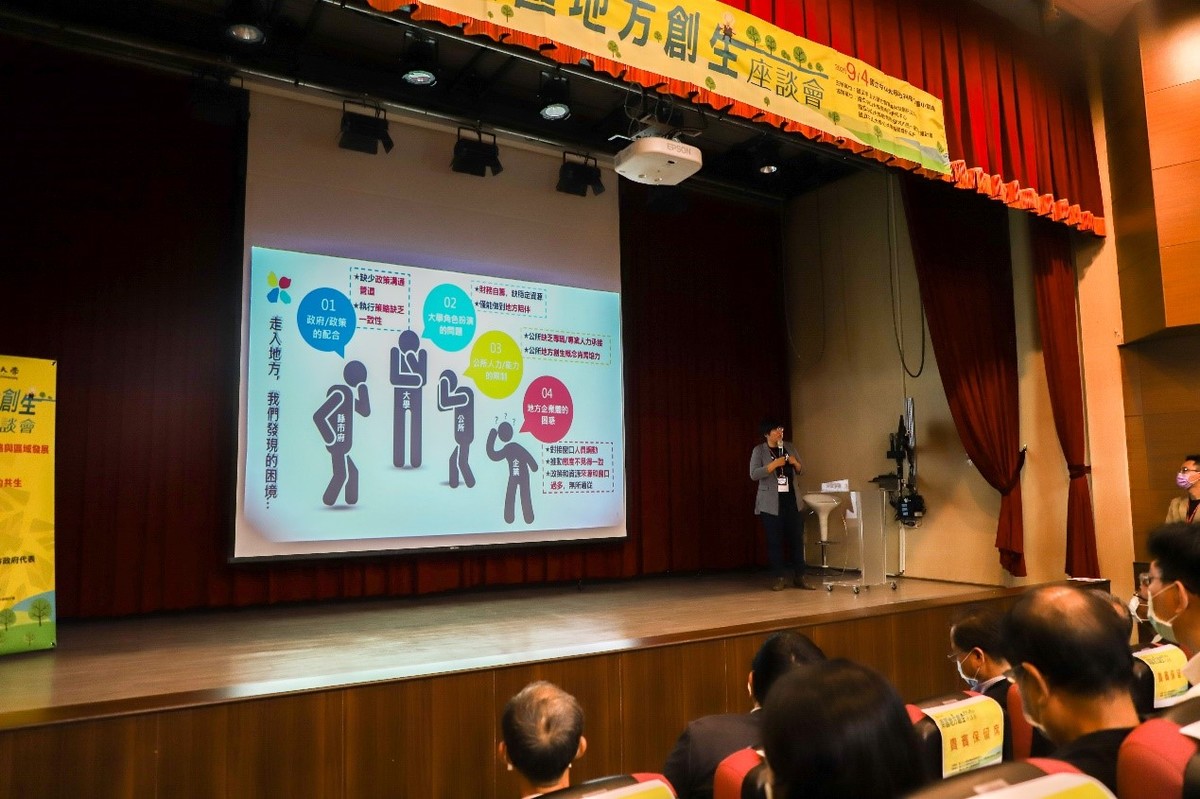
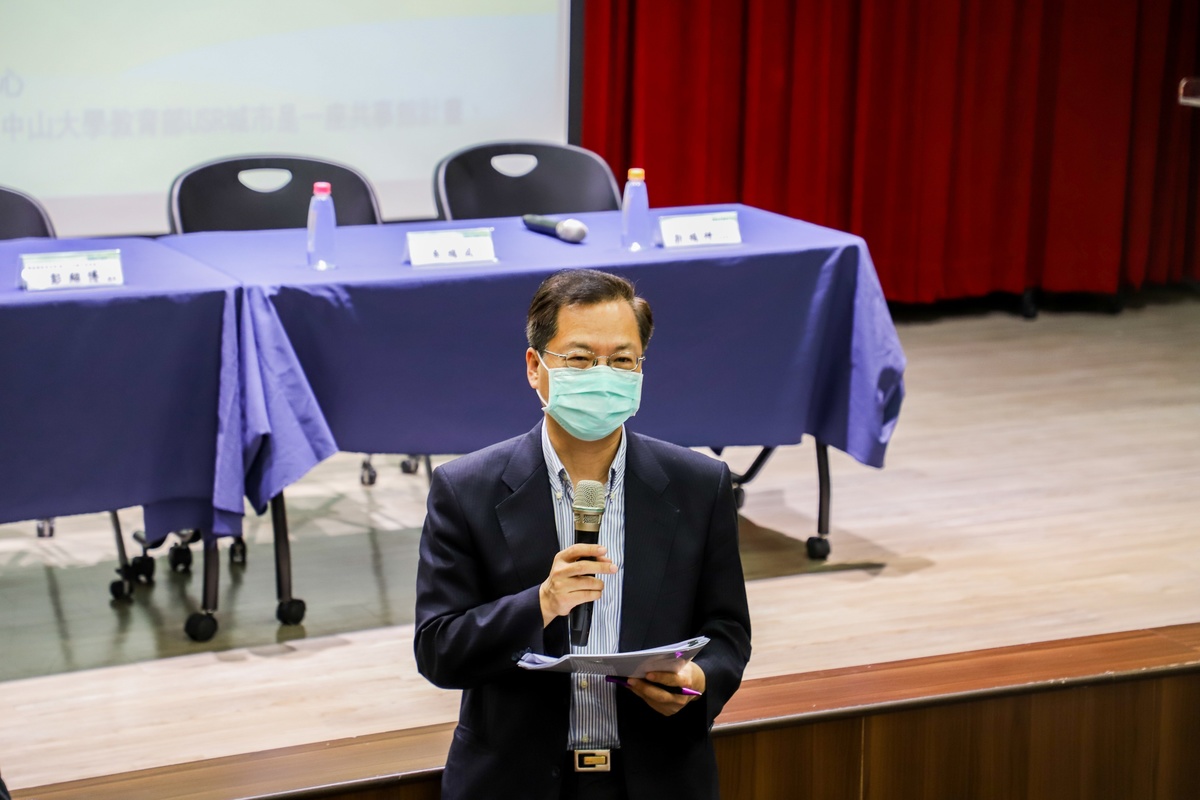
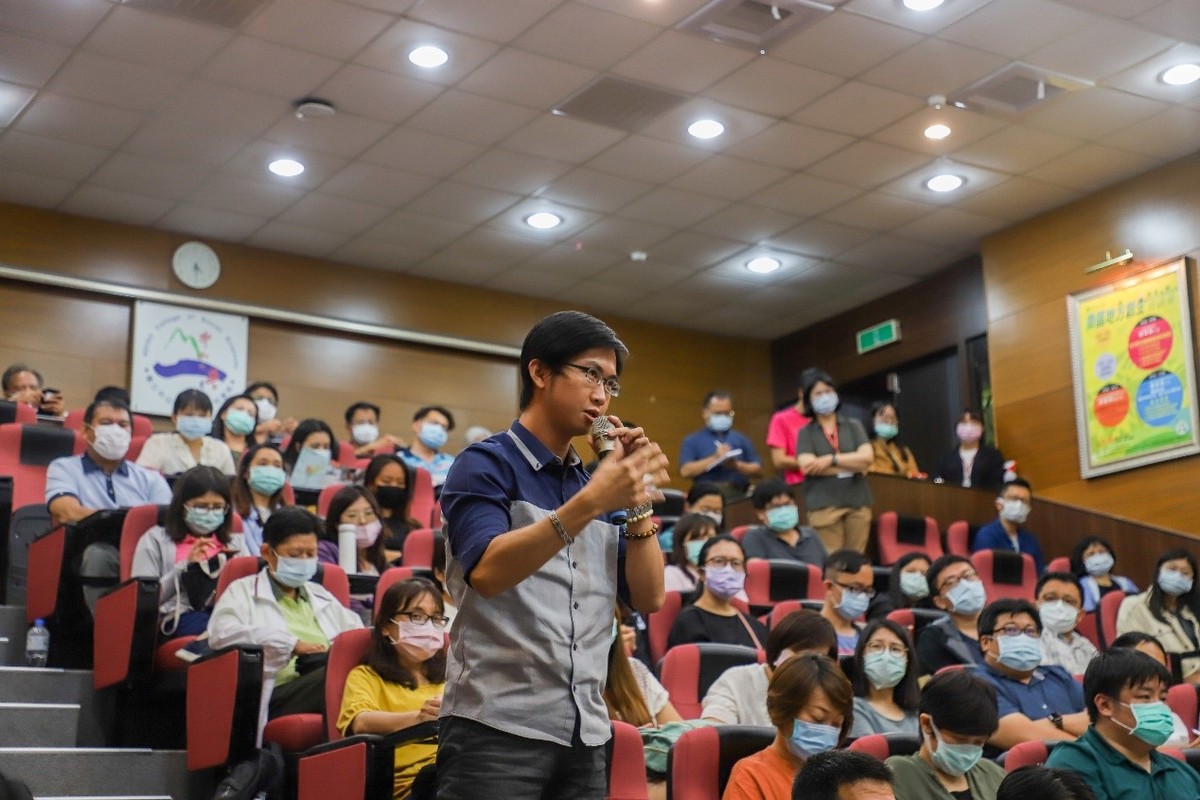
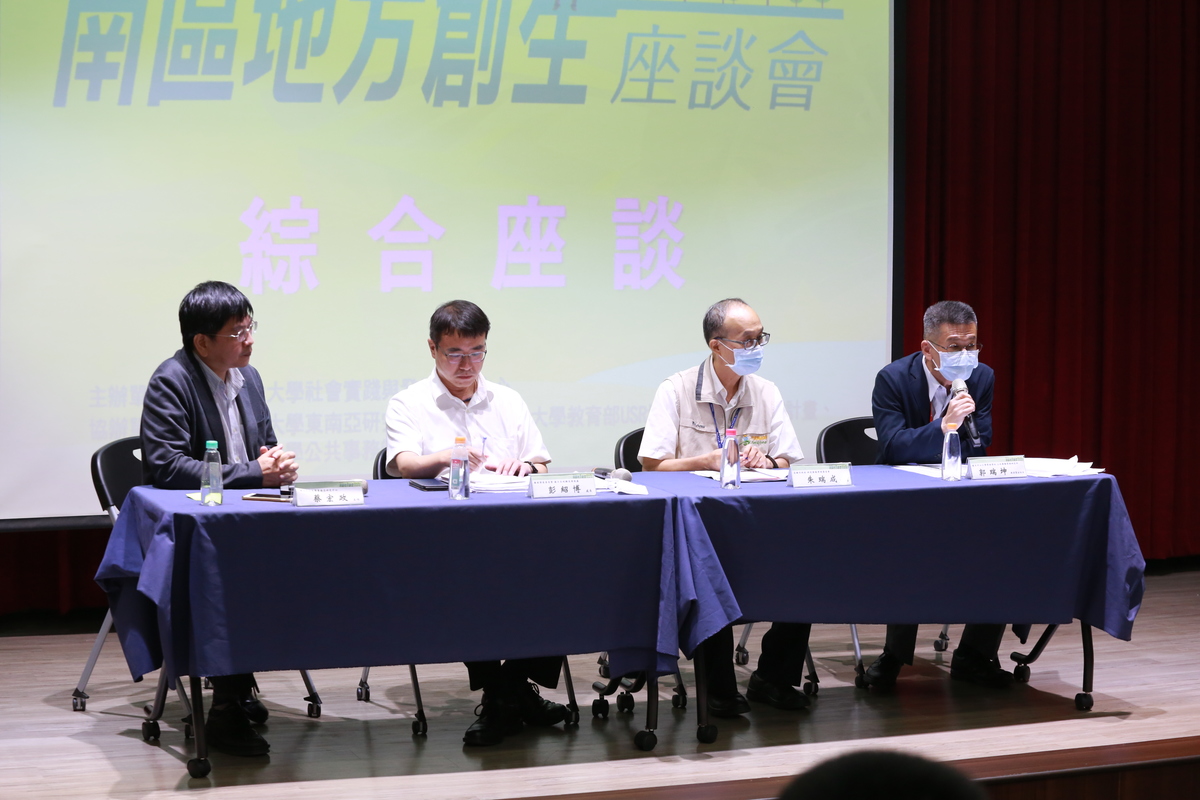
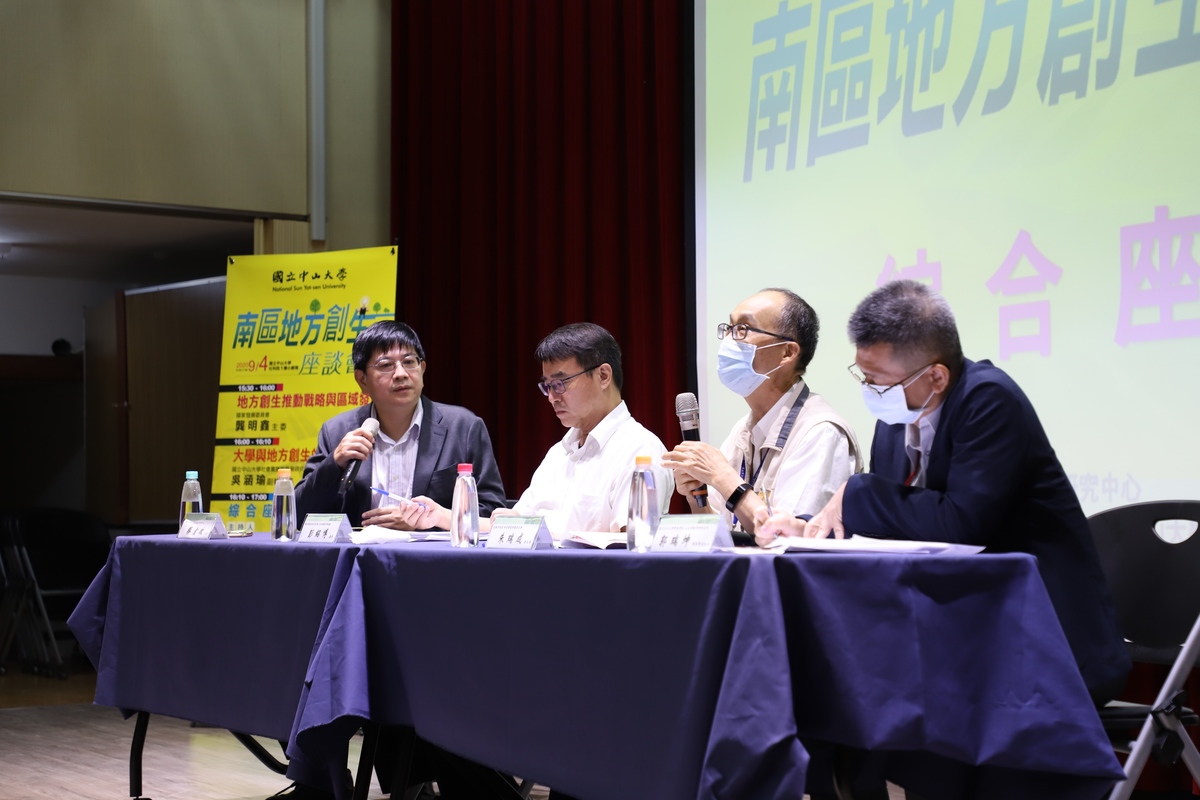
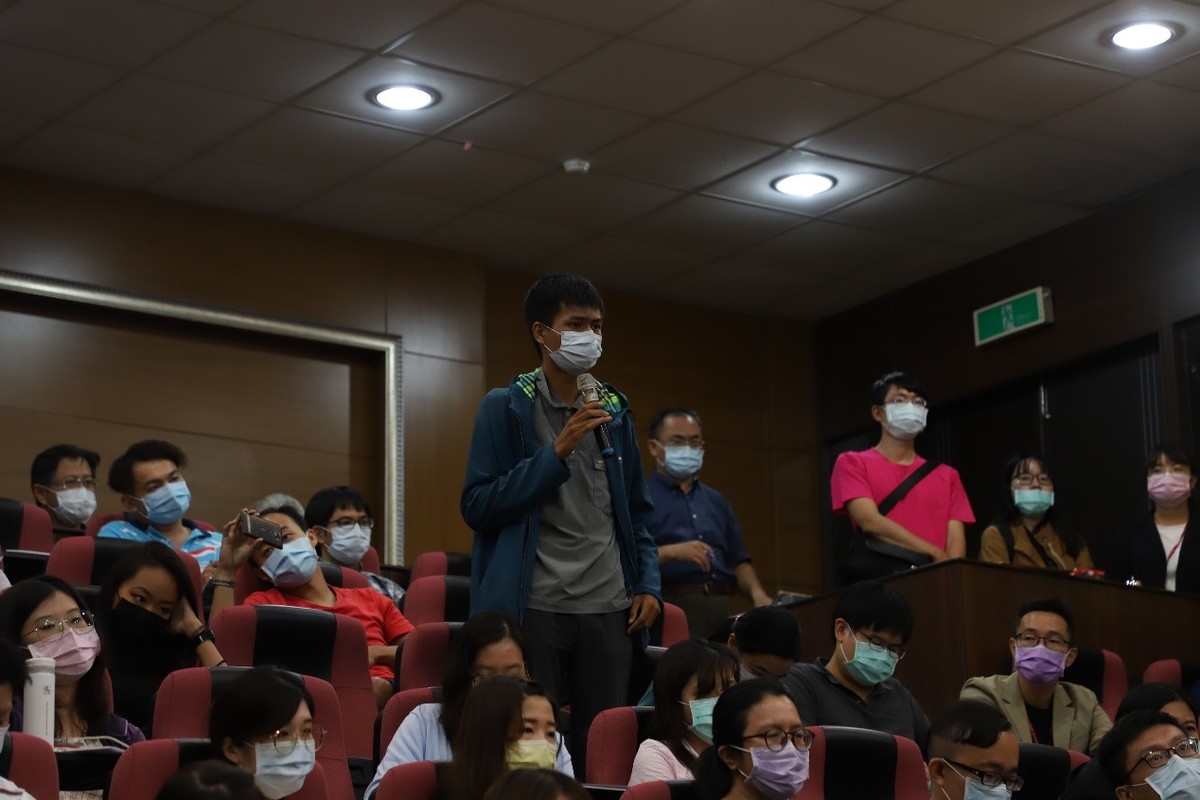
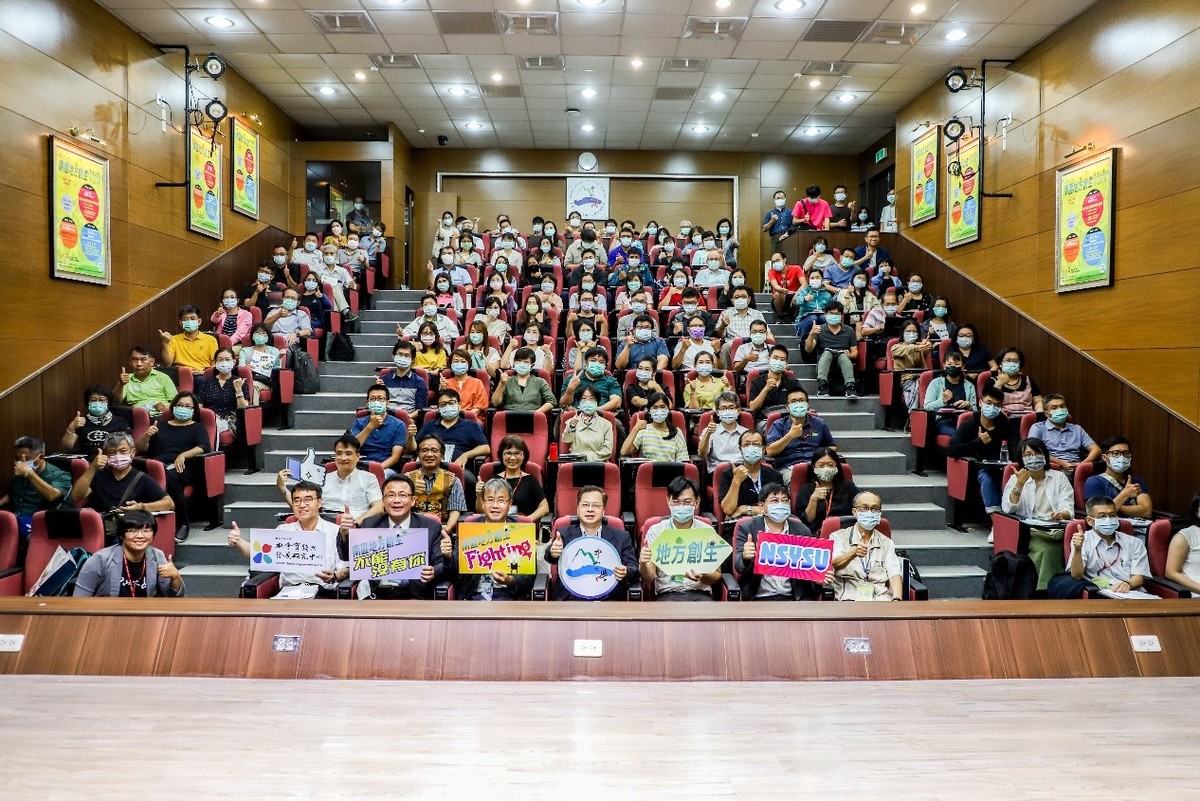
(Provided by Social Engagement Center) Social Engagement Center at National Sun Yat-sen University, which has been actively participating in regional revitalization, invited the Minister of National Development Council (NDC) Ming-Hsin Kung to give a keynote speech on the promotion of regional revitalization strategy and development. University President Ying-Yao Cheng, professors, and managers of first-level administrative units attended the lecture, as well as the Deputy Mayor of Kaohsiung City Ta-Sheng Lo and Director-General of the Information Bureau Chien-Hung Tung. Minister Kung came to Kaohsiung to share his thoughts on the policy and listen to the voices of front-line staff involved in regional revitalization, which can serve as important references for policy enforcement in the near future. The front-line staff acknowledges and fully appreciates Minister Kung’s visit and engagement in direct dialogue on the policy directions.
Youth is crucial for the regional revitalization policy – said Minister Kung – regional development is to be driven by the people steadily taking roots in the communities and the youth’s creativity. He took tourism as an example and said that in the past, there was a tendency to focus on the fast increase of the number of tourists, while he believes that with youth as the driving force for innovation, and by finding new humanistic values of the region, the sustainability of tourist resources can be achieved. With this concept in mind, the regional revitalization policy should focus on supporting the diverse development of the young, building their connection with the region, networking, and engaging them through entrepreneurship. National Development Council prepared an NTD 6 mln budget of the Forward-Looking Project for 5 years to promote regional revitalization and at the same time, conducted cross-department consultations to jointly support youth’s investment in regional development. To realize this aim, the National Development Council is currently devising the plan for the establishment of district advisory centers, and universities can provide vital support and collaboratively help the youth invest in regional revitalization. A few days earlier, Japan released the national strategy for regional revitalization, which included making universities the outpost of professionals’ training and increasing the student admission quotas of public universities.
The Associate Director of the Social Engagement Center, NSYSU, Han-Yu Wu shared the experience of synergy between the university and regional revitalization from the youth’s point of view. NSYSU has currently assisted four project proposals for the Kaohsiung and Pingtung region: two single-district and two cross-district proposals. In the process, the NSYSU team discovered the short-handed situation of district offices in the region, the disparity in the communication of the policy, and lack of stable resources to respond to encountered problems. She also said that the university, through translation of government policy into community knowledge, the establishment of ties and common understanding, integration of resources, professional training, and other forms of active participation, supports the youth to attain the vision of regional revitalization.
The host of the symposium, Hung-Jeng Tsai, Director of the Center for Southeast Asian Studies, NSYSU, invited the Director-General Shao-Po Peng of the Department of National Territory and Outer Islands Development, NDC, the Deputy Chairman of the Research, Development and Evaluation Commission of Kaohsiung City Government Jui-Cheng Chu, and Professor Jui-Kun Kuo of the Institute of Public Affairs Management, College of Management, NSYSU, to discuss the promotion of the regional revitalization policy. Director-General Peng said that sustainable management is the key to regional revitalization and that NDC, by establishing ties with departments involved in the policy, will establish advisory groups, cultivate local involvement, and reinforce the functions of towns and cities to contribute to forming a virtuous circle of regional revitalization. Deputy Chairman Chu presented the local government’s point of view and gave recommendations for improvement, such as: simplifying the review process, giving more incentives for investment, reinforcing the communication between the regional and central government for an unimpeded realization of the policy, turning the city council into a platform for promotion of the policy, and encouraging regional investment. Professor Jui-Kun Kuo shared his experience with the practical realization of the policy. Professor Kuo stated that the regional revitalization policy can support aggregate planning, however, very often the review process disorganizes the direction of the whole project and the focus on specific problems; he thus advised Taiwan to take reference of Japan’s policy.
This symposium gathered over one hundred representatives of district offices, community groups, and schools. The public frequently interacted with Minister Kung and other guests of the symposium. Most participants came from villages and townships in Tainan, Kaohsiung, and Pingtung areas. Front-line staff investing in regional revitalization included junior employees of district offices, regional teams involved in long-term community construction, and representatives of schools supporting regional development. The participants took this opportunity to discuss problems encountered in different districts and share personal observations. Minister Kung and the guests responded to every inquiry providing suggestions and promising to work out solutions with related departments. Minister Kung emphasized that the symposium on regional revitalization will be organized in the future to give more opportunities for discussion and exchange. He also thanked NSYSU for the contribution to regional revitalization and expressed his hope that the establishment of advisory centers will enhance the effectiveness of the university in policy-related consultations and training of professionals to help young people take roots in the region and build up the value of the region.
Youth is crucial for the regional revitalization policy – said Minister Kung – regional development is to be driven by the people steadily taking roots in the communities and the youth’s creativity. He took tourism as an example and said that in the past, there was a tendency to focus on the fast increase of the number of tourists, while he believes that with youth as the driving force for innovation, and by finding new humanistic values of the region, the sustainability of tourist resources can be achieved. With this concept in mind, the regional revitalization policy should focus on supporting the diverse development of the young, building their connection with the region, networking, and engaging them through entrepreneurship. National Development Council prepared an NTD 6 mln budget of the Forward-Looking Project for 5 years to promote regional revitalization and at the same time, conducted cross-department consultations to jointly support youth’s investment in regional development. To realize this aim, the National Development Council is currently devising the plan for the establishment of district advisory centers, and universities can provide vital support and collaboratively help the youth invest in regional revitalization. A few days earlier, Japan released the national strategy for regional revitalization, which included making universities the outpost of professionals’ training and increasing the student admission quotas of public universities.
The Associate Director of the Social Engagement Center, NSYSU, Han-Yu Wu shared the experience of synergy between the university and regional revitalization from the youth’s point of view. NSYSU has currently assisted four project proposals for the Kaohsiung and Pingtung region: two single-district and two cross-district proposals. In the process, the NSYSU team discovered the short-handed situation of district offices in the region, the disparity in the communication of the policy, and lack of stable resources to respond to encountered problems. She also said that the university, through translation of government policy into community knowledge, the establishment of ties and common understanding, integration of resources, professional training, and other forms of active participation, supports the youth to attain the vision of regional revitalization.
The host of the symposium, Hung-Jeng Tsai, Director of the Center for Southeast Asian Studies, NSYSU, invited the Director-General Shao-Po Peng of the Department of National Territory and Outer Islands Development, NDC, the Deputy Chairman of the Research, Development and Evaluation Commission of Kaohsiung City Government Jui-Cheng Chu, and Professor Jui-Kun Kuo of the Institute of Public Affairs Management, College of Management, NSYSU, to discuss the promotion of the regional revitalization policy. Director-General Peng said that sustainable management is the key to regional revitalization and that NDC, by establishing ties with departments involved in the policy, will establish advisory groups, cultivate local involvement, and reinforce the functions of towns and cities to contribute to forming a virtuous circle of regional revitalization. Deputy Chairman Chu presented the local government’s point of view and gave recommendations for improvement, such as: simplifying the review process, giving more incentives for investment, reinforcing the communication between the regional and central government for an unimpeded realization of the policy, turning the city council into a platform for promotion of the policy, and encouraging regional investment. Professor Jui-Kun Kuo shared his experience with the practical realization of the policy. Professor Kuo stated that the regional revitalization policy can support aggregate planning, however, very often the review process disorganizes the direction of the whole project and the focus on specific problems; he thus advised Taiwan to take reference of Japan’s policy.
This symposium gathered over one hundred representatives of district offices, community groups, and schools. The public frequently interacted with Minister Kung and other guests of the symposium. Most participants came from villages and townships in Tainan, Kaohsiung, and Pingtung areas. Front-line staff investing in regional revitalization included junior employees of district offices, regional teams involved in long-term community construction, and representatives of schools supporting regional development. The participants took this opportunity to discuss problems encountered in different districts and share personal observations. Minister Kung and the guests responded to every inquiry providing suggestions and promising to work out solutions with related departments. Minister Kung emphasized that the symposium on regional revitalization will be organized in the future to give more opportunities for discussion and exchange. He also thanked NSYSU for the contribution to regional revitalization and expressed his hope that the establishment of advisory centers will enhance the effectiveness of the university in policy-related consultations and training of professionals to help young people take roots in the region and build up the value of the region.
Click Num:
Share
